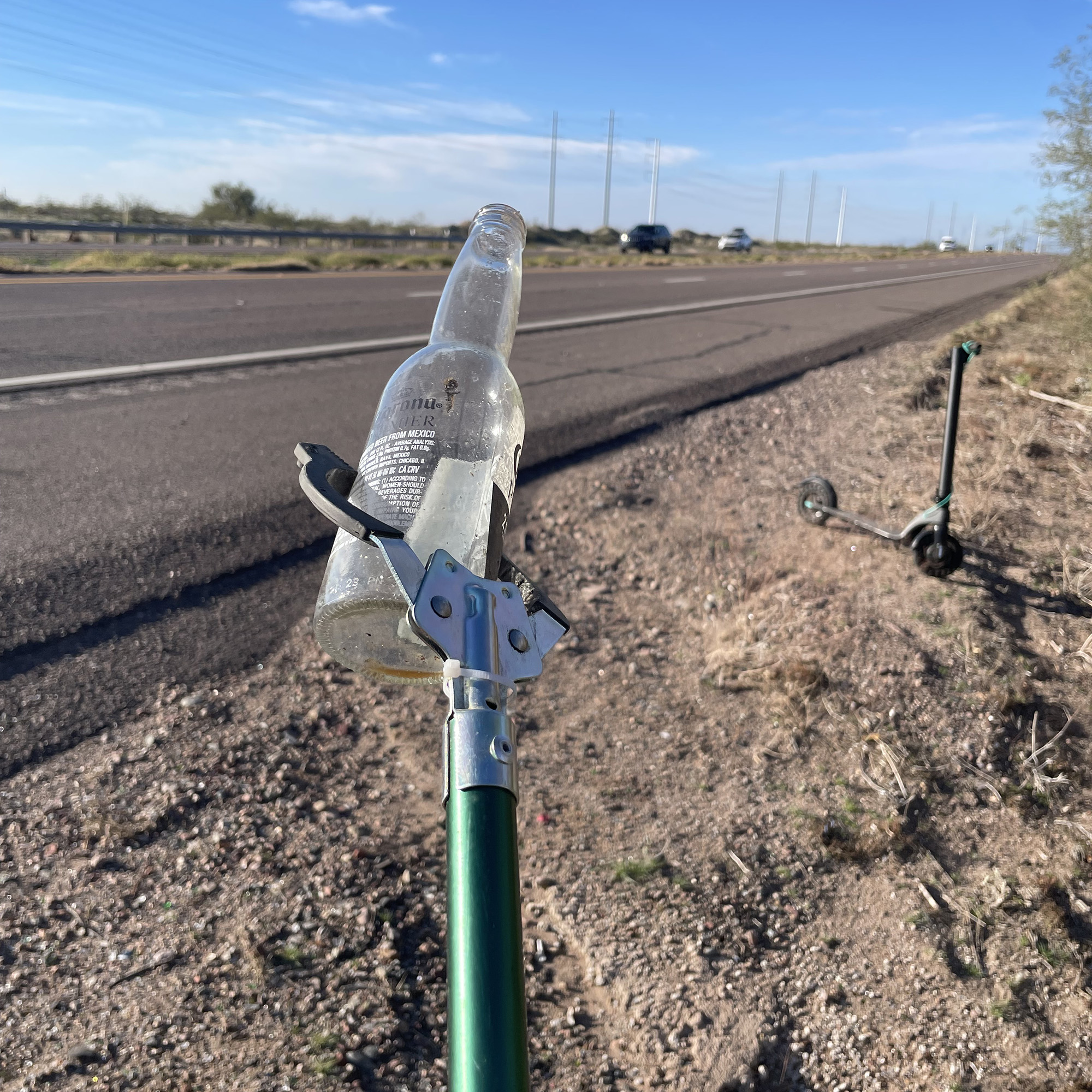Celebrating a cleaner highway mile – but why the bottles?
Celebrating a cleaner highway mile – but why the bottles?

Friends, co-workers and family joined me recently for our second cleanup of an adopted mile of State Route 87, a few miles north of the Loop 202 Red Mountain Freeway in Mesa. After filling more than 20 large litter bags in our first effort, it was gratifying to only be able to fill eight bags just a few months later. We’re clearly making a difference – and having fun in the process.
This was my first opportunity to examine items that accumulated on a highway mile that we’d left reasonably clean after that first pickup. What struck me most was glass bottles – a couple dozen in all, most on the side traveling south toward Loop 202. At least some of the fast food wrappers, aluminum cans, soft drink cups and plastic water bottles we bagged could conceivably have blown from an open window or truck or trailer bed. But the glass bottles, from microbrews to malt liquor, wine to tea drinks, are another story.
Someone presumably made an effort to hurl each of these from a moving vehicle, usually 10 to 20 feet beyond the roadway. Some bottles broke on impact, while others survived intact, perhaps thanks to bushes cushioning the fall. For each bottle I came upon, I tried imagining the person who tossed it. He or she? Young or older? Returning from the river or the high country? Just passing through? Sober or not?
Then I thought about a question that challenges not just ADOT but everyone with an interest in reducing litter: What, if anything, could persuade a person to keep that bottle in the car? ADOT tends to feature the social benefits of keeping highways beautiful, in large part through the dedicated efforts of Adopt a Highway volunteers. We generally avoid negative messaging about people who litter, thinking this isn’t likely to make a difference.
When I was safely home, I did some quick research on the psychology of littering and how studies and theories might apply to messaging.
One study found that people are more likely to litter in an area that’s perceived as already dirty. Our mile, lying just west of the Salt River, has a bit of an industrial vibe, so maybe that’s a factor, though there are homes nearby and lovely mountain views. Another study suggests – unsurprisingly – that many people consider litter to be someone else’s problem. Yet another suggests that some people litter because it feels good to be bad. There’s no shortage of other research, but those resonated with me during an admittedly cursory review.
If you’ve read to this point, I’m assuming you find littering as abhorrent as I do. So my suggestion is for you: Consider adopting your own highway segment or local street (many municipalities have programs) and then involve everyone you can, including young people (you need to be at least 12 to join a cleanup). My working theory is that being involved in keeping our highways grand might make someone think twice later before tossing a cigarette butt, wrapper, bottle, etc., out the window.
If you’d like to get involved, please visit azdot.gov/adoptahighway.
